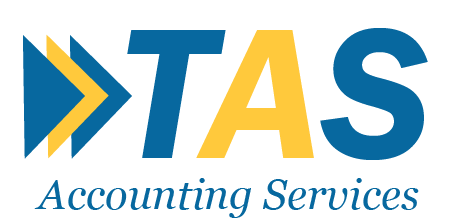VAT Compliance for eCommerce & Online Sellers: A Complete Guide
If you’re running an online business, VAT compliance for eCommerce is a crucial aspect of your financial responsibilities. Whether you sell through Amazon, Shopify, Etsy, or your own platform, understanding eCommerce VAT rules can help you avoid costly penalties and ensure smooth cross-border trade.
Understanding VAT Compliance for eCommerce Businesses
With recent EU VAT changes in 2024, it’s more important than ever for online sellers to stay informed about VAT obligations for eCommerce. Non-compliance can result in hefty fines and potential legal action, making VAT tax compliance a top priority for sellers expanding internationally.
VAT Compliance for Online Sellers: What You Need to Know
Comprehensive Guide to VAT Compliance for eCommerce & Online Sellers
What is VAT Compliance for eCommerce?
VAT (Value-Added Tax) compliance for eCommerce businesses refers to the process of correctly registering, collecting, reporting, and paying VAT on goods and services sold online. Whether you sell through Amazon, Shopify, Etsy, or your own website, understanding eCommerce VAT rules is crucial to avoid fines and legal complications.
Why is VAT Compliance Important for eCommerce Businesses?
Key Elements of VAT Compliance for eCommerce
VAT for Online Sellers: Understanding Your Tax Obligations
Who Needs to Pay VAT for Online Sales?
If you’re selling online, whether through your own website, marketplaces, or dropshipping, you may have VAT obligations for eCommerce.
VAT for Amazon, Shopify, and Etsy Sellers
How to Stay Compliant with VAT for Online Sales
VAT Registration for eCommerce: A Step-by-Step Guide
When Do You Need VAT Registration for eCommerce?
📍 If you exceed VAT thresholds (e.g., £85,000 in the UK, €10,000 for EU cross-border sales).
📍 If selling to EU customers, consider registering for IOSS or OSS VAT systems.
📍 If storing inventory in different countries (e.g., Amazon FBA warehouses).
How to Register for VAT as an eCommerce Business
1️⃣ Determine where you need to register (UK, EU, or other regions).
2️⃣ Submit VAT registration applications to the relevant tax authorities.
3️⃣ Receive your VAT number and update your invoices and website accordingly.
4️⃣ Start charging VAT at the correct rates based on customer location.
5️⃣ File VAT returns regularly to report collected VAT.
Documents Required for VAT Registration
📌 Business registration details
📌 Proof of business activity (e.g., invoices, purchase orders)
📌 Bank details for tax payments
Ensuring VAT compliance for eCommerce businesses is essential for avoiding fines, expanding globally, and building customer trust. Whether you are a Shopify, Amazon, or Etsy seller, understanding VAT obligations for eCommerce will help your business thrive.
Cross-Border VAT Compliance & EU VAT for Online Sellers
As eCommerce continues to expand globally, understanding cross-border VAT compliance, EU VAT for online sellers, and VAT obligations for eCommerce businesses has become more critical than ever. This guide covers the essential VAT rules for international sellers, helping businesses stay compliant and avoid costly penalties.
How to Stay Tax Compliant When Selling Internationally
What is Cross-Border VAT Compliance?
Cross-border VAT compliance refers to the process of charging, collecting, reporting, and paying VAT when selling products or services internationally. VAT for eCommerce businesses varies depending on the buyer’s location, the seller’s country, and the applicable tax laws.
Why is Cross-Border VAT Compliance Important?
How Does VAT Work for Cross-Border Sales?
🔹 :
🔹 :
🔹 Selling outside the EU/UK:
Key Considerations for Cross-Border VAT Compliance
📌 VAT thresholds – Some countries require VAT registration only after reaching a sales threshold.
📌 Customs & import VAT – If you ship goods internationally, VAT may be due upon import.
📌 Marketplace VAT collection – Platforms like Amazon, Shopify, and Etsy may handle VAT but not always.
EU VAT for Online Sellers: Understanding the 2024 VAT Rules
What is EU VAT for Online Sellers?
EU VAT for online sellers refers to the tax regulations that apply when selling goods or services to customers within the European Union. In 2024, new VAT rules further streamline compliance for international sellers.
Key EU VAT Changes
📌 OSS (One-Stop Shop) Expansion – Simplifies VAT reporting for sellers operating in multiple EU countries.
📌 IOSS (Import One-Stop Shop) Threshold Changes – Applies to goods valued at €150 or less for faster customs clearance.
📌 Marketplace VAT Liability – Platforms like Amazon, Shopify, and Etsy may collect VAT directly for certain transactions.
How Online Sellers Can Stay EU VAT Compliant
✅ Register for OSS/IOSS to handle EU-wide VAT filings under a single system.
✅ Collect the correct VAT rates based on the customer’s location.
✅ File VAT returns on time to avoid fines and penalties.
VAT Obligations for eCommerce Businesses: What You Need to Know
Who Has VAT Obligations for eCommerce?
If you sell goods or services online, you may have VAT obligations for eCommerce, depending on:
📍 Your business location (EU, UK, or outside these regions).
📍 Where your customers are located (domestic or international sales).
📍 Your annual revenue (if above the VAT threshold, registration is mandatory).
What Are the Main VAT Obligations for eCommerce Businesses?
🔹 Registering for VAT – If your sales exceed VAT thresholds, you must complete VAT registration for eCommerce.
🔹 Charging the correct VAT rate – Different countries have different VAT rates for goods and services.
🔹 Filing VAT returns – Businesses must regularly submit VAT reports to tax authorities.
🔹 Keeping accurate records – Proper invoicing and bookkeeping help prevent tax compliance issues.
How to Manage VAT Obligations Efficiently
💡 Automate VAT calculations using tax software like Avalara or TaxJar.
💡 Hire VAT compliance services to handle complex tax reporting.
💡 Stay updated on tax law changes, such as the EU VAT changes 2024.
Mastering cross-border VAT compliance and EU VAT for online sellers is essential for any eCommerce business expanding globally. By following VAT obligations for eCommerce, sellers can avoid penalties, maintain a smooth customer experience, and ensure long-term success.
VAT for Dropshipping Businesses, eCommerce Tax Compliance & VAT for Amazon Sellers
As eCommerce continues to evolve, understanding VAT for dropshipping businesses, eCommerce tax compliance, and VAT for Amazon sellers is essential for online entrepreneurs. Whether you run a dropshipping store, sell across borders, or use Amazon’s FBA services, VAT compliance can impact your profitability and legal standing.
VAT for Dropshipping Businesses: How to Stay Compliant
What is Dropshipping?
Dropshipping is a business model where sellers list products on their eCommerce store without holding inventory. Instead, when a customer places an order, the supplier (usually a third party) ships the product directly to the buyer.
How Does VAT Apply to Dropshipping?
VAT rules for dropshipping businesses depend on:
📌 Where the supplier is located
📌 Where the customer is based
📌 Whether the seller is the “importer of record”
Common VAT Scenarios for Dropshipping
Key Considerations for Cross-Border VAT Compliance
How to Stay VAT Compliant as a Dropshipper
✅ Determine your VAT liability based on sales volume and region.
✅ Register for VAT in applicable countries (OSS, IOSS, UK VAT).
✅ Ensure correct VAT collection at checkout using tax automation tools.
✅ Work with VAT compliance services to manage tax filings efficiently.
eCommerce Tax Compliance: What Online Sellers Need to Know
What is eCommerce Tax Compliance?
eCommerce tax compliance refers to the rules and regulations businesses must follow when selling online, including VAT registration, tax collection, reporting, and filing.
Why is eCommerce Tax Compliance Important?
Key VAT Compliance Rules for eCommerce Businesses
How to Maintain eCommerce Tax Compliance
📌 Check VAT thresholds in all selling regions.
📌 Integrate tax automation tools with your eCommerce platform.
📌 Monitor EU VAT changes 2024 and updates in VAT compliance UK eCommerce laws.
Who Needs to Pay VAT on Amazon?
If you sell on Amazon, you may need to comply with VAT for Amazon sellers, especially if:
📌 You store goods in an Amazon fulfillment center (FBA) in the UK or EU.
📌 You exceed VAT thresholds in the countries where you sell.
📌 You sell cross-border within the EU or to UK customers.
How Amazon Handles VAT Collection
How to Stay VAT Compliant as an Amazon Seller
✅ Register for VAT in applicable countries (UK, EU, or other markets).
✅ Use Amazon’s VAT Calculation Service to charge the correct tax rates.
✅ File VAT returns on time to avoid penalties.
✅ Consider VAT compliance services for automated tax management.
Whether you run a dropshipping business, sell on Amazon, or operate a Shopify store, VAT compliance is essential for avoiding legal issues and optimizing international sales.
Comprehensive Guide to VAT for Shopify Sellers, EU VAT Changes 2024 & VAT Compliance for Retail Ireland
Staying compliant with VAT regulations is crucial for eCommerce businesses operating on platforms like Shopify, especially when selling across borders. This guide covers VAT for Shopify sellers, the latest EU VAT changes in 2024, and the specific VAT compliance requirements for retail businesses in Ireland.
VAT for Shopify Sellers: What You Need to Know
Does VAT Apply to Shopify Sellers?
Yes! Whether you’re selling locally or internationally, VAT for Shopify sellers applies if you meet the VAT registration thresholds in the countries where your customers are located. Shopify does not automatically handle VAT compliance—you are responsible for registering, collecting, and filing VAT returns.
When Do Shopify Sellers Need to Register for VAT?
Key Challenges for Shopify Sellers Managing VAT
How Shopify Sellers Can Simplify VAT Compliance
✅ Register for VAT in required jurisdictions (UK, EU, or other countries).
✅ Use automation tools like Avalara, TaxJar, or Quaderno for VAT calculation and reporting.
✅ Stay updated on regulatory changes like the EU VAT changes in 2024.
VAT Compliance for Retail in Ireland
Who Needs to Register for VAT in Ireland?
How to Register for VAT in Ireland
How Shopify Sellers Can Simplify VAT Compliance
✅ Register for VAT in required jurisdictions (UK, EU, or other countries).
✅ Use automation tools like Avalara, TaxJar, or Quaderno for VAT calculation and reporting.
✅ Stay updated on regulatory changes like the EU VAT changes in 2024.
VAT Compliance Obligations for Retail in Ireland
✅ Charge the correct VAT rate based on product type.
✅ Issue VAT-compliant invoices to customers.
✅ File VAT returns every two months (bi-monthly VAT filings are mandatory in Ireland).
✅ Maintain proper records for a minimum of 6 years.
Common Mistakes to Avoid in Irish VAT Compliance
Whether you are a Shopify seller, an eCommerce entrepreneur affected by EU VAT changes in 2024, or a retail business in Ireland, understanding and implementing VAT compliance is essential.
Introduction to VAT Compliance for eCommerce & Online Sellers
The rapid growth of eCommerce has transformed the way businesses operate, enabling online sellers to reach customers across the globe. However, with this expansion comes the challenge of navigating complex VAT (Value Added Tax) regulations. Whether you’re a small Shopify store, an Amazon seller, or a dropshipping business, understanding VAT compliance is essential to avoid penalties, maintain customer trust, and ensure smooth operations.
What is VAT Compliance, and Why Does It Matter for Online Sellers?
VAT compliance refers to the process of adhering to VAT regulations set by tax authorities. For eCommerce businesses, this includes charging the correct VAT rates, filing accurate VAT returns, and maintaining proper records. Non-compliance can result in hefty fines, legal issues, and damage to your business’s reputation.
For online sellers, VAT compliance is particularly important because:
Key VAT Compliance Services for eCommerce Businesses
To simplify VAT compliance, many online sellers rely on professional VAT compliance services. These services can help with:
Understanding VAT Obligations for eCommerce Businesses
VAT obligations vary depending on your business model, location, and customer base. Here’s a breakdown of key VAT obligations for online sellers:
VAT Compliance for Retail, eCommerce & Online Sellers: Key Challenges
How to Ensure VAT Compliance for Your eCommerce Business
The Future of VAT Compliance for Retail, eCommerce & Online Sellers
As eCommerce continues to grow, VAT compliance will remain a top priority for online sellers. Here are some trends to watch:
Whether you’re an Amazon seller, a Shopify store owner, or a dropshipping business, this guide provides the tools and knowledge you need to navigate VAT compliance with confidence. Don’t let VAT complexities hold you back—take control of your tax obligations and unlock the full potential of your eCommerce business.
Common Mistakes in VAT Compliance for eCommerce & Online Sellers
Even experienced online sellers can make errors when dealing with VAT compliance for eCommerce businesses. Mistakes in VAT registration for eCommerce, tax calculations, or reporting can lead to penalties, overpayments, or legal issues. Here are some of the most common VAT mistakes and how to avoid them:
Failing to Register for VAT in the Right Countries
One of the biggest mistakes sellers make is not registering for VAT in the necessary countries. If you sell to customers in the EU, UK, or other VAT-applicable regions, you may be legally required to obtain a VAT registration for eCommerce businesses.
👉 Solution: Research eCommerce VAT rules in your target markets. If required, register for VAT in the appropriate jurisdictions to avoid non-compliance penalties.
Misunderstanding Cross-Border VAT Compliance
International sellers often struggle with cross-border VAT compliance, especially after EU VAT changes in 2024. Selling across multiple countries means different tax obligations, VAT thresholds, and reporting requirements.
👉 Solution: Work with VAT compliance services to ensure proper VAT handling across different regions. Use automation tools or tax consultants to simplify cross-border transactions.
Incorrect VAT Calculation on eCommerce Sales
Failing to apply the correct VAT rates can result in overcharging or undercharging customers. VAT for online sellers varies depending on the customer’s location, product type, and seller’s registration status.
👉 Solution: Set up tax automation software on platforms like Shopify, Amazon, or Etsy to calculate VAT accurately. Verify eCommerce tax compliance with updated VAT rates.
Ignoring VAT for Dropshipping Businesses
Many dropshippers assume they don’t need to handle VAT, but that’s not always true. VAT for dropshipping businesses depends on supplier location, customer destination, and whether the dropshipper is the importer of record.
👉 Solution: Check your VAT obligations and whether you need to register under VAT rules for eCommerce businesses before selling internationally.
Missing VAT Filing Deadlines
Late or incorrect VAT filings can lead to penalties and additional scrutiny from tax authorities. Regulations such as VAT compliance UK eCommerce require timely reporting, especially for businesses selling in Europe.
👉 Solution: Keep a tax calendar with all VAT filing deadlines. Consider using VAT compliance services to handle your returns accurately and on time.
Not Factoring VAT into Product Pricing
If you don’t include VAT in your pricing strategy, you may find yourself losing profit margins. VAT for eCommerce businesses must be accounted for when setting product prices.
👉 Solution: Decide whether to display prices inclusive or exclusive of VAT and ensure customers know the final price they’ll pay.
Assuming Marketplaces Handle All VAT Obligations
While platforms like Amazon, Shopify, and Etsy collect VAT in certain cases, sellers still have responsibilities. VAT for Amazon sellers, VAT for Shopify sellers, and VAT rules for Etsy sellers require sellers to verify whether they need to register and report VAT separately.
👉 Solution: Check whether the marketplace handles VAT for your transactions or if you must register independently.
Overlooking VAT Compliance for Retail Ireland & the UK
With post-Brexit changes, VAT compliance for retail Ireland and the UK has become more complex. Many sellers don’t realize they need separate VAT registrations for the UK and EU.
👉 Solution: Stay updated on the latest regulations for VAT compliance UK eCommerce and VAT for online sellers in Ireland to avoid unexpected tax liabilities.
Avoiding these common mistakes in VAT compliance for eCommerce & online sellers is crucial for smooth operations and financial stability. Whether you sell through Amazon, Shopify, Etsy, or your own store, staying updated with EU VAT changes 2024 and using VAT compliance services can help prevent costly errors.
SWOT Analysis: VAT Compliance for eCommerce & Online Sellers
A SWOT analysis (Strengths, Weaknesses, Opportunities, and Threats) helps businesses understand the impact of VAT compliance for eCommerce and how to navigate tax obligations effectively. Below is a detailed breakdown of VAT compliance from an eCommerce business perspective.
🟢 Why VAT Compliance is Beneficial
🟠 Challenges in VAT Compliance
🟡 How eCommerce Sellers Can Benefit from VAT Compliance
🔴 Risks of Non-Compliance
Mastering VAT compliance for eCommerce & online sellers is both a necessity and an opportunity. While challenges like frequent regulation changes and complex tax calculations exist, proper VAT tax compliance helps businesses scale globally and avoid financial pitfalls.
PESTLE Analysis: VAT Compliance for eCommerce & Online Sellers
A PESTLE analysis (Political, Economic, Social, Technological, Legal, and Environmental factors) helps evaluate how external factors impact VAT compliance for eCommerce businesses. Understanding these factors can help online sellers navigate tax regulations and optimize their businesses for growth.
🟢 Government Policies & Regulations
🟡 Financial Impact on eCommerce Businesses
🟠 Consumer Behavior & Market Trends
🔵 Digital Tools & Automation
🟣 Regulatory Requirements & Compliance Risks
🟤 Sustainability & Green Tax Policies
VAT compliance for eCommerce businesses is influenced by various external factors, including political regulations, economic conditions, technological advancements, and legal changes. Staying updated on EU VAT changes 2024, leveraging VAT compliance services, and using automation tools can help businesses stay compliant and competitive.
Case Studies
Amazon FBA Seller Expanding to the EU
Shopify Seller Dropshipping from China to the UK & EU
Etsy Seller Managing VAT in Multiple EU Countries
Frequently Asked Questions
1. What is VAT, and why is it important for eCommerce businesses?
Value-Added Tax (VAT) is a consumption tax applied to goods and services sold in many countries, including the EU, UK, and other global markets. For online sellers, proper VAT tax compliance ensures they operate legally and avoid penalties.
2. Do I need to register for VAT if I sell online?
It depends on your sales volume and the countries where you operate. If you exceed the VAT registration for eCommerce threshold in a specific country (e.g., £85,000 in the UK or €10,000 in the EU for cross-border sales), you must register and collect VAT.
3. How does VAT apply to cross-border eCommerce sales?
Cross-border VAT compliance varies by region:
Selling outside the EU/UK: VAT may not apply, but import taxes could be due.
Within the EU: The EU VAT for online sellers rules apply, and businesses may need an IOSS (Import One-Stop Shop) registration.
Selling to the UK: VAT compliance UK eCommerce requires separate registration post-Brexit.
4. Do Amazon, Shopify, and Etsy handle VAT for sellers?
Marketplaces like Amazon, Shopify, and Etsy handle VAT collection in some cases but not all.
VAT rules for Etsy sellers: Etsy collects VAT on behalf of some sellers, but independent registration may still be required.
VAT for Amazon sellers: Amazon collects VAT in certain countries but sellers may still need to register.
VAT for Shopify sellers: Shopify provides VAT settings, but sellers are responsible for compliance.
5. What are the key EU VAT changes for 2024?
The EU VAT changes 2024 include new thresholds, marketplace responsibilities, and updates to the One-Stop Shop (OSS) and Import One-Stop Shop (IOSS) systems. Sellers must stay updated to ensure compliance with evolving eCommerce VAT rules.
6. How does VAT affect dropshipping businesses?
For VAT for dropshipping businesses, VAT rules depend on the supplier’s location, customer’s country, and import regulations. If products are shipped from outside the EU/UK, sellers may need to collect VAT at checkout to prevent customs delays.
7. What happens if I don’t comply with VAT regulations?
Failing to comply with VAT obligations for eCommerce can lead to:
❌ Fines & penalties for incorrect filings.
❌ Account suspension on platforms like Amazon, Shopify, or Etsy.
❌ Legal action from tax authorities.
8. What are the benefits of using VAT compliance services?
Professional VAT compliance services help businesses:
✅ Register & file VAT returns accurately.
✅ Stay updated with changing VAT laws (e.g., EU VAT for online sellers).
✅ Avoid tax errors & penalties, ensuring smooth operations.
9. How do I include VAT in my pricing strategy?
Online sellers can choose to:
💰 Display VAT-inclusive prices (common in the EU).
💰 Show VAT-exclusive prices (used in B2B transactions).
💰 Adjust profit margins to absorb VAT costs effectively.
10. How can I automate VAT calculations for my online store?
eCommerce sellers can use automated VAT compliance tools, such as:
⚙️ Avalara (for cross-border VAT compliance).
⚙️ TaxJar (integrates with Shopify, Amazon, and Etsy).
⚙️ Xero & QuickBooks (for VAT tracking and reporting).

















